
Austerity as Public Mood
Radical Cultural Studies
Series Editors: Fay Brauer, Maggie Humm, Tim Lawrence, Stephen Maddison, Ashwani Sharma and Debra Benita Shaw (Centre for Cultural Studies Research, University of East London, UK)
The Radical Cultural Studies series publishes monographs and edited collections to provide new and radical analyses of the culturopolitics, sociopolitics, aesthetics and ethics of contemporary cultures. The series is designed to stimulate debates across and within disciplines, foster new approaches to cultural studies and assess the radical potential of key ideas and theories.
Sewing, Fighting and Writing: Radical Practices in Work, Politics and Culture,
Maria Tamboukou
Radical Space: Exploring Politics and Practice,
edited by Debra Benita Shaw and Maggie Humm
Science Fiction, Fantasy and Politics: Transmedia World-Building Beyond Capitalism,
Dan Hassler-Forest
EU, Europe Unfinished: Europe and the Balkans in a Time of Crisis
edited by Zlatan Krajina and Neboja Blanua
Postcolonial Interruptions, Unauthorised Modernities,
Iain Chambers
Austerity as Public Mood: Social Anxieties and Social Struggles,
Kirsten Forkert
Metamodernism: Historicity, Affect, Depth
edited by Robin van den Akker, Alison Gibbons and Timotheus Vermeulen
Pornography, Materiality and Cultural Politics,
Stephen Maddison (forthcoming)
Austerity as Public Mood
Social Anxieties and Social Struggles
Kirsten Forkert

London New York
Published by Rowman & Littlefield International Ltd
Unit A, Whitacre Mews, 2634 Stannary Street, London SE11 4AB
www.rowmaninternational.com
Rowman & Littlefield International Ltd. is an affiliate of Rowman & Littlefield
4501 Forbes Boulevard, Suite 200, Lanham, Maryland 20706, USA
With additional offices in Boulder, New York, Toronto (Canada), and Plymouth (UK)
www.rowman.com
Copyright 2017 Kirsten Forkert
All rights reserved. No part of this book may be reproduced in any form or by any electronic or mechanical means, including information storage and retrieval systems, without written permission from the publisher, except by a reviewer who may quote passages in a review.
British Library Cataloguing in Publication Data
A catalogue record for this book is available from the British Library
ISBN: HB 978-1-7834-8193-4
Library of Congress Cataloging-in-Publication Data Available
ISBN: 978-1-78348-193-4 (cloth: alk. paper)
ISBN: 978-1-78348-194-1 (electronic)

The paper used in this publication meets the minimum requirements of American National Standard for Information Sciences Permanence of Paper for Printed Library Materials, ANSI/NISO Z39.481992.
Printed in the United States of America
Contents
Acknowledgements
I would like to thank the support of the Birmingham City Universitys Faculty Research Investment Scheme, which gave me the time to write this book. I want to thank Debbie Shaw for her careful and insightful editorial work, and the team at Rowman & Littlefield International for making this all happen. Thanks also to those who agreed to be interviewed for this book.
I also want to acknowledge the support of the Economic and Social Research Council (ESRC) in funding the Mapping Immigration Controversy project, of which the interview with the immigration advisor in chapter 4 was part (grant number ES/L008971/1). This project involved Principal Investigator Hannah Jones and Co-Investigators Gargi Bhattacharyya, William Davies, Sukhwant Dhaliwal, Yasmin Gunaratnam, Emma Jackson and Roiyah Saltus, as well as the author and I want to thank all of them, as well as all those who participated in the research. An earlier version of chapter 5 was published in New Formations 87, and so I also thank the editors of the issue, Rebecca Bramall and Jeremy Gilbert.
Thanks to all those activists who I have interviewed, for sharing their thoughts and experiences.
I also want to thank those who have helped read parts of this book, and for the ongoing conversations which have shaped my thinking around this book: Vicky Blake, Gemma Commane, the Debt Collective, Rajinder Dudrah, Leslie Faizi, Anne Graefer, John Hamilton, James Holland, Ana Lopes, Jamie Melrose, Eugene Nulman, Saskia OHara and Focus E15, David Ridley and Dave Stamp. I also want to thank my fellow activists in the UCU, local campaigners in Lewisham, Birmingham Asylum and Refugee Association and other immigrants and refugee rights campaigners I have worked with over the years. Thanks to the inspiring thinking of Sara Ahmed, Bridget Anderson, Lauren Berlant, Judith Butler, William Connolly, Stuart Hall, Jo Littler and others who have shaped the book.
Thanks especially to my partner Peter Conlin, whose support has been indispensable and who has also helped me crystallise my thinking around the book. Thanks to my family as well.
This book is dedicated to all those who are campaigning for a future beyond austerity, and to challenge the nostalgic, socially conservative politics which currently shape the public mood.
Introduction
Tightening Our Belts
The seeds for this book were sown when I was finishing my PhD in 2010. It was the aftermath of the financial crisis, and the former Labour administration here in the United Kingdom had bailed out the banks with 141bn, with exposure to liabilities at 1.3tn (Oxfam 2013). The justification was that if they did not do so then it would destroy the global economy (the term too big to fail was frequently used at the time). The public were told that the good times were over and that the hard times were coming, and that we needed to tighten our belts. In order to counter claims by the Conservatives and the press that the Labour Party were profligate spenders, former Chancellor Alistair Darling claimed, rather desperately in retrospect, that Labour would cut deeper than Thatcher (Elliot 2010). Such tough talk did not go far enough to counter these perceptions, as well as more general assumptions around right-wing governments as more fiscally prudent. In May 2010, the ConservativeLiberal Democrat government was elected.
One of the governments first proposals was to treble tuition fees for students in England to 9,000/year, based on the Browne Review, followed by other large demonstrations with tens and in some cases hundreds of thousands of people; teach-outs (where lessons and discussions took place in public spaces), student occupations and other experiments, although due to other commitments, I could not spend as long on these activities as I wished. Some of my time was spent in the solitary and more reflective experience of thinking and writing. And then finally, some was spent at work: I was juggling two, and, at one point, three, part-time jobs. As the student protests lost momentum after the narrow vote to increase tuition fees, I became involved in local campaigns around saving public services. These developed in response to government plans to cut and privatise these services, as part of an overall policy of austerity.
The term age of austerity was first used in the UK context by former Conservative leader David Cameron at the 2009 Conservative Party conference (Summers 2009). It can be defined as voluntary deflation measures involving deep cuts to public spending but without significant increases in tax, with the goal of restoring competitiveness and giving confidence to financial markets (Blyth 2013a; Oxfam 2013, 2). However, in practice, austerity policies do not have the effect of stabilising economies, reducing debt or promoting growth (Blyth 2013a, 34). Instead, economic insecurity and job losses cause people to engage in protective measures, such as cutting back personal spending or taking wage cuts, resulting in shrinking consumer demand and reduced tax revenues (Blyth 2013a, 910). In the United Kingdom, the result has been economic stagnation and rising of public debt from 56.6% of GDP in 2009 to 90% of GDP in 2013 (Office of National Statistics 2013a). It was also a policy which resulted in dramatic increases in inequality. Due to changes to tax and welfare, the poorest 10% of the population saw a 38% drop in their income, with the wealthiest 10% only losing 5% (Horton and Reed 2010 cited in Oxfam 2013, 4). At the same time, the wealthiest 1,000 individuals saw their wealth increase by 138bn (Sunday Times Rich List cited in Oxfam 2013, 4).


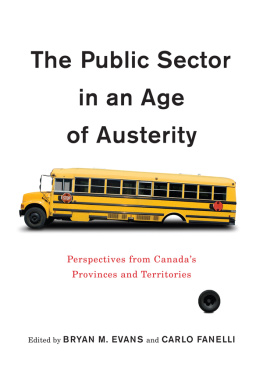
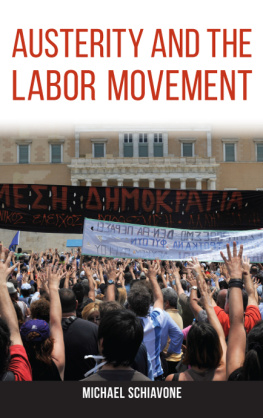
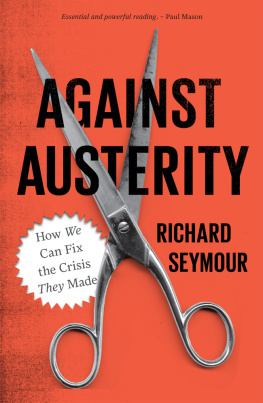
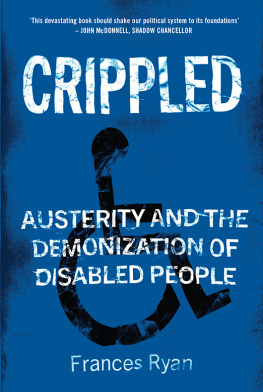
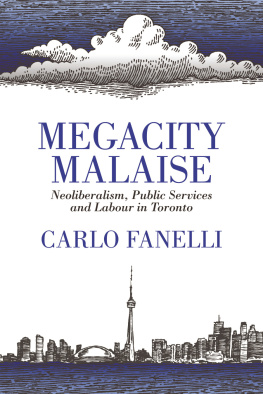
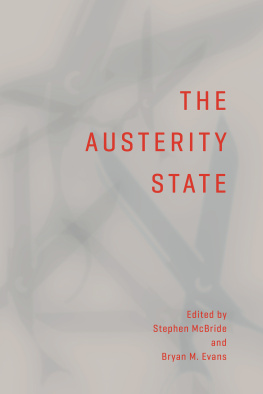
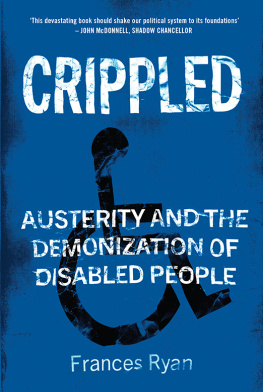
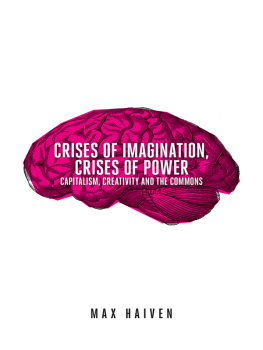


 The paper used in this publication meets the minimum requirements of American National Standard for Information Sciences Permanence of Paper for Printed Library Materials, ANSI/NISO Z39.481992.
The paper used in this publication meets the minimum requirements of American National Standard for Information Sciences Permanence of Paper for Printed Library Materials, ANSI/NISO Z39.481992.